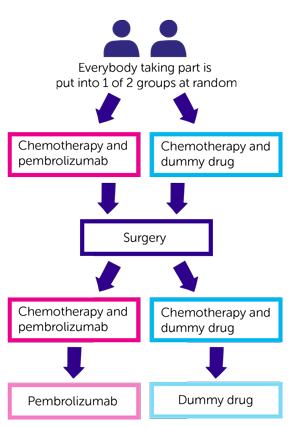
In the last decade, immune checkpoint inhibitors (ICIs) targeting programmed death-1 (PD-1) or programmed death-ligand 1 (PD-L1) have proved to be a promising treatment option for patients with advanced/metastatic NSCLC. In particular, NSCLC is the most common type of lung cancer, accounting for 84% of all lung cancer diagnoses, as reported by international cancer statistics ( ).

These real-world findings demonstrated the significant correlation between OS and cutaneous toxicities.Īccording to the World Health Organization (WHO), non–small cell lung cancer (NSCLC) is a common and deadly malignancy with over 2.21 million new diagnoses and over 1.8 million associated deaths per year worldwide. The percentage of irAEs detected was comparable to that reported in KEYNOTE-024 and KEYNOTE-042. Patients experiencing any type of toxicity had a significantly longer median OS (20.39 months, 95% CI: 13.08-NA) than those with no toxicities (6.46 months, 95% CI: 1.41-NA, p = 0.006). Immune-Related Adverse Events (irAEs) occurred in 77.5% of patients (30.1% cutaneous, 27.5% gastrointestinal, and 20.4% endocrinological), but no grade 4 or 5 irAEs were identified. The median OS of 13.6 months (95% CI: 11.7-NA) was not influenced by sex and PD-L1, but was significantly associated with ECOG-PS ( p = 0.02).

The median number of cycles was 8.5 at a median follow-up of 13 months. The entire cohort had stage IV NSCLC at diagnosis. The cohort’s main characteristics were as follows: median age 73 years, 64.3% were male and 35.7% were female, an ECOG-PS score of 0 ( n = 73) and 1 or 2 ( n = 25), and a PD-L1 > 90% in 29.6% of patients. Clinical data, including PD-L1 expression, Performance Status (ECOG-PS), treatment duration, toxicity, and outcomes were retrieved from local electronic medical records and from the Italian Regulatory Agency Registry. Patients were treated with pembrolizumab (200 mg q3w) as a first-line treatment. This retrospective observational study involved 98 patients with mNSCLC, TPS ≥ 50%, and no EGFR/ALK aberrations. The aim of this study was to reveal the correlation between OS and adverse events in real-world settings after 42 months. Many trials supported pembrolizumab as a first-line monotherapy to significantly improve overall survival (OS) in selected patients with previously untreated metastatic Non–Small Cell Lung Cancer (mNSCLC) and a PD-L1 TPS of ≥50% without EGFR/ALK mutations.


 0 kommentar(er)
0 kommentar(er)
